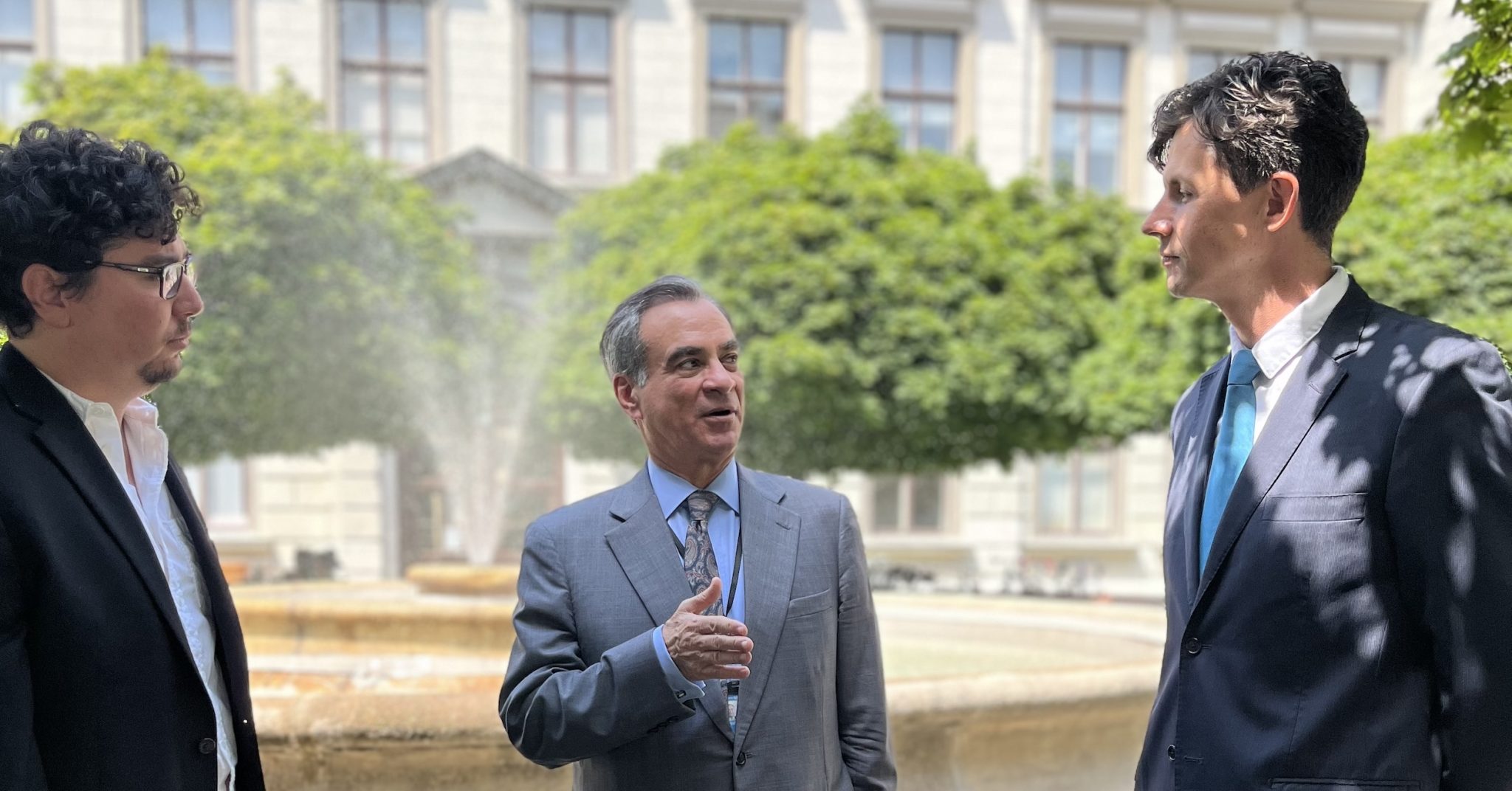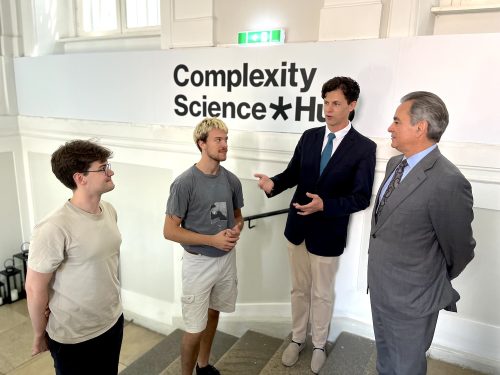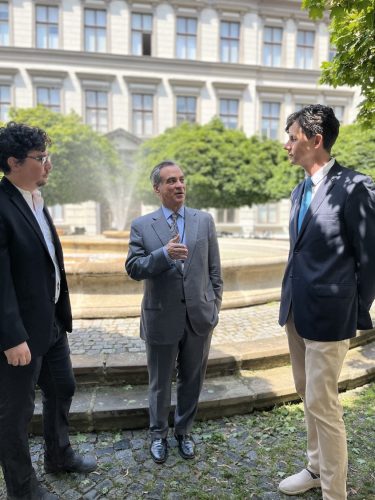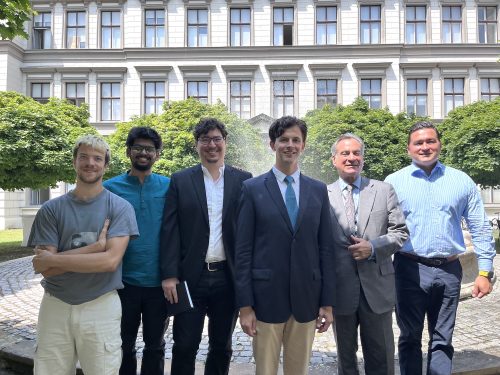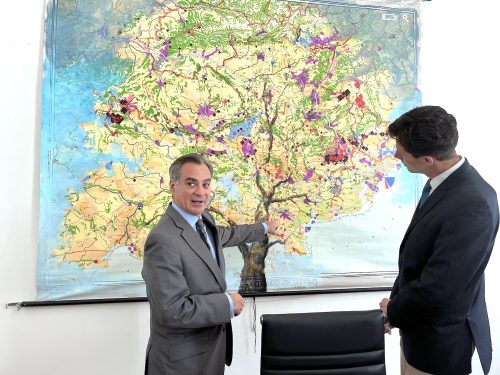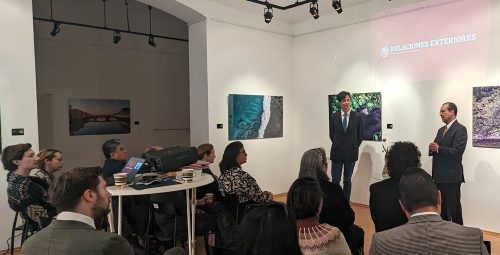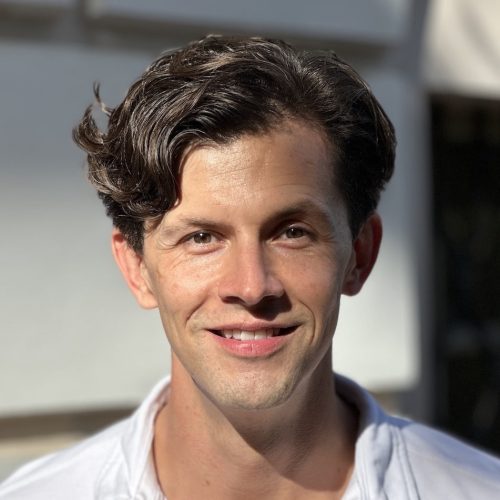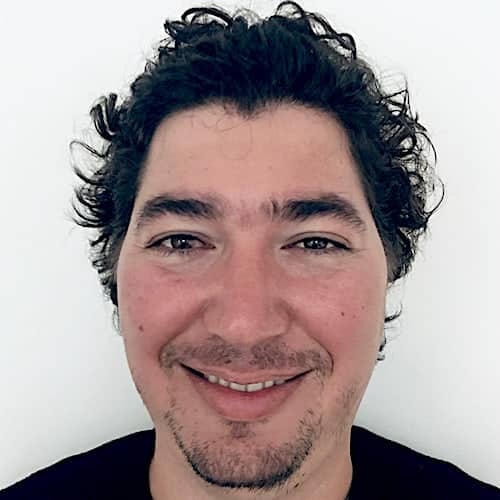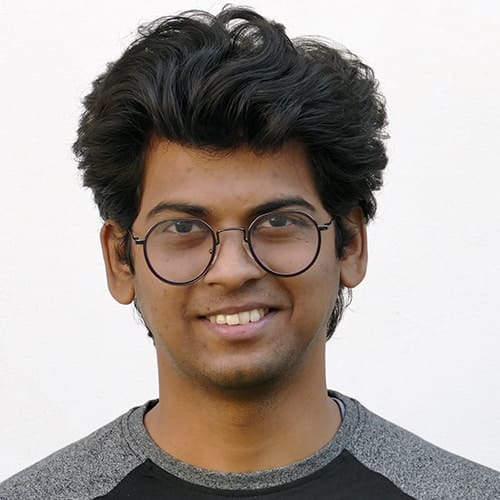Latin American decision-makers and CSH researchers exchange views to combat organized crime
In most countries in Latin America, violence has become the biggest challenge. Although the region hosts only 8% of the world’s population, it accounts for over 30% of global homicides. “Under these challenging conditions, models and data help shape security strategies,” explains Rafael Prieto-Curiel, a faculty member at CSH.
To address these challenges, an effective exchange between scientists and decision-makers is crucial. This exchange helps to understand the societal challenges and risks and apply research findings effectively.
RESEARCH MEETS POLITICS
Rafael Prieto-Curiel, Ernesto Ortega Díaz, and Niraj Kushwaha were invited to the Embassy of Mexico in Vienna by Ambassador José Antonio Zabalgoitia Trejo. They presented their research on violence and discussed new models to observe organized crime and cartels in Latin America.
Later, Jorge Skinner-Klée Arenales, the Ambassador of Guatemala to Austria, and Andrés Molina, Counsellor for Guatemala’s Permanent Mission to the United Nations in Vienna, visited CSH. They sought to learn more about this research and explore potential collaborations between CSH researchers and Guatemala and other Latin American countries.
Additionally, Santiago Palomo-Vila, the anti-corruption commissioner from Guatemala, visited CSH to discuss challenges and strategies to combat organized crime and corruption.
TWO PERSPECTIVES, ONE GOAL
Exchanges like these hold great potential: Decision-makers deal with criminality daily and have the power to implement improvement measures. Meanwhile, scientists develop methods to understand the dynamics and root causes of gang and cartel violence. By creating mathematical models, analyzing datasets and comparing the impact of various measures, for example, they can provide evidence-based insights. Collaboration can lead to a deeper understanding of the complexities involved, laying the groundwork for informed policy interventions and cooperative efforts.
“These meetings underscored the crucial role of science in informing evidence-based policymaking and diplomatic initiatives,” says Prieto-Curiel. By presenting rigorous research findings, scientists hold the key to a solid foundation for decision-makers to formulate targeted interventions tailored to each country’s unique challenges. In return, insights into each country’s specific issues help researchers understand current plans and considerations from decision-makers, making their research even more relevant and useful.
Moving forward, these meetings served to establish valuable links between researchers at CSH and the diplomatic community in Vienna and the United Nations.
